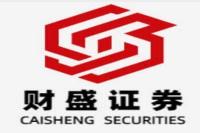Ping An's Talent Exodus: A Deep Dive into Executive Mobility and Strategic Implications
Meta Description: Explore the recent departures of key executives from Ping An Insurance, their new roles, and the broader implications for the company's strategic direction and the insurance industry. Analyze the talent acquisition strategies of competitors like AIA and Sun Life, and delve into Ping An's response to this executive mobility.
Whoa, hold onto your hats! The insurance world is buzzing with the news of high-profile executive moves, and Ping An, a titan in the industry, is right at the center of the storm. It's not just a few C-suite shuffles; it's a full-blown talent migration, a fascinating game of corporate musical chairs with major implications for Ping An's future, its competitors, and the overall insurance landscape. This isn't your grandpappy's insurance industry anymore – it's dynamic, competitive, and intensely focused on talent. We're diving deep into the recent departures from Ping An, exploring the reasons behind these moves, and analyzing the strategic shifts this all represents. Forget dry corporate speak; we're going to dissect this situation with insightful analysis, backed by reputable sources, and sprinkled with a dash of human interest. Get ready to unravel the mystery behind the exodus and uncover the secrets to success (and failure) in the cutthroat world of insurance. We'll explore the "brain drain" from Ping An to competitors like AIA, the impact on Ping An's strategic direction, and the broader trends shaping the future of the industry. Buckle up, it's going to be a wild ride! We'll also look at how Ping An is responding, and what this means for their future growth and competitiveness. This isn’t just about numbers on a spreadsheet; it's a story of ambition, strategy, and the human element behind the headlines.
Ping An Executive Departures: A Wave of Change
The recent departures of several high-profile executives from Ping An have sent ripples throughout the financial world. These aren't just random exits; they represent a significant shift in the dynamics of the Chinese insurance market and highlight the intense competition for top talent. This isn't just about losing employees; it's about losing institutional knowledge, established networks, and potentially, future growth. Think of it as a brain drain, but on a much larger and more significant scale.
One of the most significant departures was that of Deng Bin, Ping An's former Chief Investment Officer. His move to Sun Life Financial as President of Asia Asset Management underscores the allure of international opportunities for experienced Chinese executives. This isn't simply a case of someone seeking greener pastures; it's a testament to Deng Bin's capabilities and the recognition he receives on the global stage. This also shows the growing internationalization of the insurance industry and the increasing competition for skilled professionals who understand both the domestic and global markets.
But Deng Bin isn't alone. A string of other high-profile departures has followed, creating a significant talent exodus that many are analyzing with keen interest. For instance, the recruitment of several former Ping An executives by AIA further exacerbates this trend. The moves are not coincidental; they suggest a deliberate strategy by AIA to leverage Ping An's extensive experience and expertise in the Chinese market.
This isn't just about individuals; it's about the transfer of valuable institutional knowledge and networks. Ping An's success over the years has been built on a strong team and a deep understanding of the Chinese market. The movement of these key figures inevitably impacts Ping An's competitive edge.
AIA's Strategic Acquisition of Ping An Talent
AIA's aggressive recruitment of former Ping An executives is a clear indication of their ambitious expansion plans within the Chinese market. The strategic acquisition of these experienced individuals represents a significant shortcut in AIA's market penetration strategy. Instead of building expertise from scratch, AIA is leveraging the established networks and knowledge of seasoned professionals who have already demonstrated success within the Chinese insurance industry. This smart move significantly reduces the time and resources needed to navigate the intricacies of the Chinese market.
Several key examples highlight this trend, for instance:
-
Li Yuanxiang: His move from Ping An to AIA as CEO speaks volumes about AIA's strategic ambitions. Li Yuanxiang brings years of experience and a deep understanding of both the international and Chinese insurance markets. His presence is a significant boost to AIA's credibility and competitive standing within China.
-
Yu Hong: The former General Manager of Ping An Life Insurance's move to AIA showcases AIA’s dedication to securing top-tier talent. His expertise in the operations and strategy of a major Chinese insurer will be invaluable to AIA's growth strategies.
-
Zhang Xiaoyu & Cai Xinfang: Their roles at AIA further strengthen AIA's leadership team and signal their commitment to a robust expansion strategy within China.
The strategic significance of these moves cannot be understated. AIA is strategically positioning itself for substantial growth in the Chinese market by acquiring not just individuals, but also the accumulated knowledge and relationships cultivated over years at Ping An. This talent acquisition directly translates into a competitive advantage in terms of market understanding, network connections, and operational efficiency. This strategic approach is a masterclass in market penetration and competitive advantage.
Ping An's Response: A Focus on Youth and Internal Growth
Facing this talent exodus, Ping An isn't sitting idly by. The company is actively responding by focusing on internal talent development and promotion of younger executives. This signals a strategic shift toward building a new generation of leaders within the organization. This isn't just a reactive measure; it's a proactive plan to cultivate a strong internal talent pipeline for future growth.
Ping An's recent internal appointments demonstrate this commitment. The promotion of younger executives to key leadership roles signifies a clear intention to foster internal growth and succession planning. This strategy aims to cultivate a new generation of leaders who are deeply rooted in Ping An's culture and values.
This rejuvenation of leadership is a two-pronged approach: it addresses the immediate challenge of executive departures and simultaneously cultivates a sustainable future leadership team.
The Broader Implications for the Insurance Industry
The Ping An executive departures and the subsequent talent acquisition by competitors have significant implications for the larger insurance industry in China and beyond. This is not an isolated incident; it reflects broader trends within the industry, namely:
-
Increased Competition: The insurance market is becoming increasingly competitive, prompting companies to aggressively pursue top talent to maintain a competitive edge.
-
Global Talent Mobility: The free flow of talent across borders is transforming the dynamics of the global insurance industry. Companies are actively seeking out individuals with international experience and expertise.
-
Focus on Innovation: The success of insurance companies increasingly hinges on their ability to innovate and adapt to changing market conditions. Companies are seeking talented individuals who can drive innovation and strategic growth.
-
Emphasis on Succession Planning: The departures highlight the importance of effective succession planning to ensure organizational stability and long-term growth.
These broader industry trends underscore the need for insurance companies to invest in talent development, cultivate a culture of innovation, and proactively manage succession planning to remain competitive in an ever-evolving landscape. The implications are far-reaching and will shape the future of the insurance industry in significant ways.
Frequently Asked Questions (FAQs)
Here are some frequently asked questions about the Ping An executive departures:
Q1: Why are so many executives leaving Ping An?
A1: There's no single answer. Factors likely include attractive offers from competitors, opportunities for career advancement, and personal reasons. The competitive landscape in the insurance industry is intense, and talented executives are highly sought after.
Q2: What is the impact on Ping An's business?
A2: The departures could potentially impact Ping An's short-term performance, especially concerning institutional knowledge and established networks. However, Ping An's proactive response, focusing on internal development, is aimed at mitigating these risks.
Q3: What is AIA's strategy in recruiting Ping An executives?
A3: AIA is clearly aiming to accelerate its expansion in China by leveraging the expertise and networks of experienced professionals from Ping An. It's a smart strategic move to gain a competitive advantage.
Q4: Is this a sign of a larger trend within the Chinese insurance industry?
A4: Yes, this shows increased competition and the growing importance of talent acquisition in the industry. Companies are aggressively pursuing top talent to drive growth and innovation.
Q5: How is Ping An responding to these departures?
A5: Ping An is focusing on developing its internal talent pipeline, promoting younger executives, and strengthening succession planning to ensure future leadership.
Q6: What are the long-term implications of this talent shift?
A6: The long-term effects are still unfolding. However, it could lead to increased competition, innovation, and a reshaping of the leadership landscape within the Chinese insurance industry.
Conclusion
The recent executive departures from Ping An represent a pivotal moment in the Chinese insurance market. While the departures present short-term challenges, Ping An’s strategic response demonstrates a commitment to internal development and long-term growth. The broader implications extend beyond Ping An, reflecting a dynamic and competitive industry landscape. The future will reveal the full impact of this talent shift, but one thing is certain: the insurance industry is undergoing a significant transformation, driven by competition, innovation, and the ever-increasing importance of talent acquisition and retention. The game is far from over, and the next moves will be just as captivating to watch.



